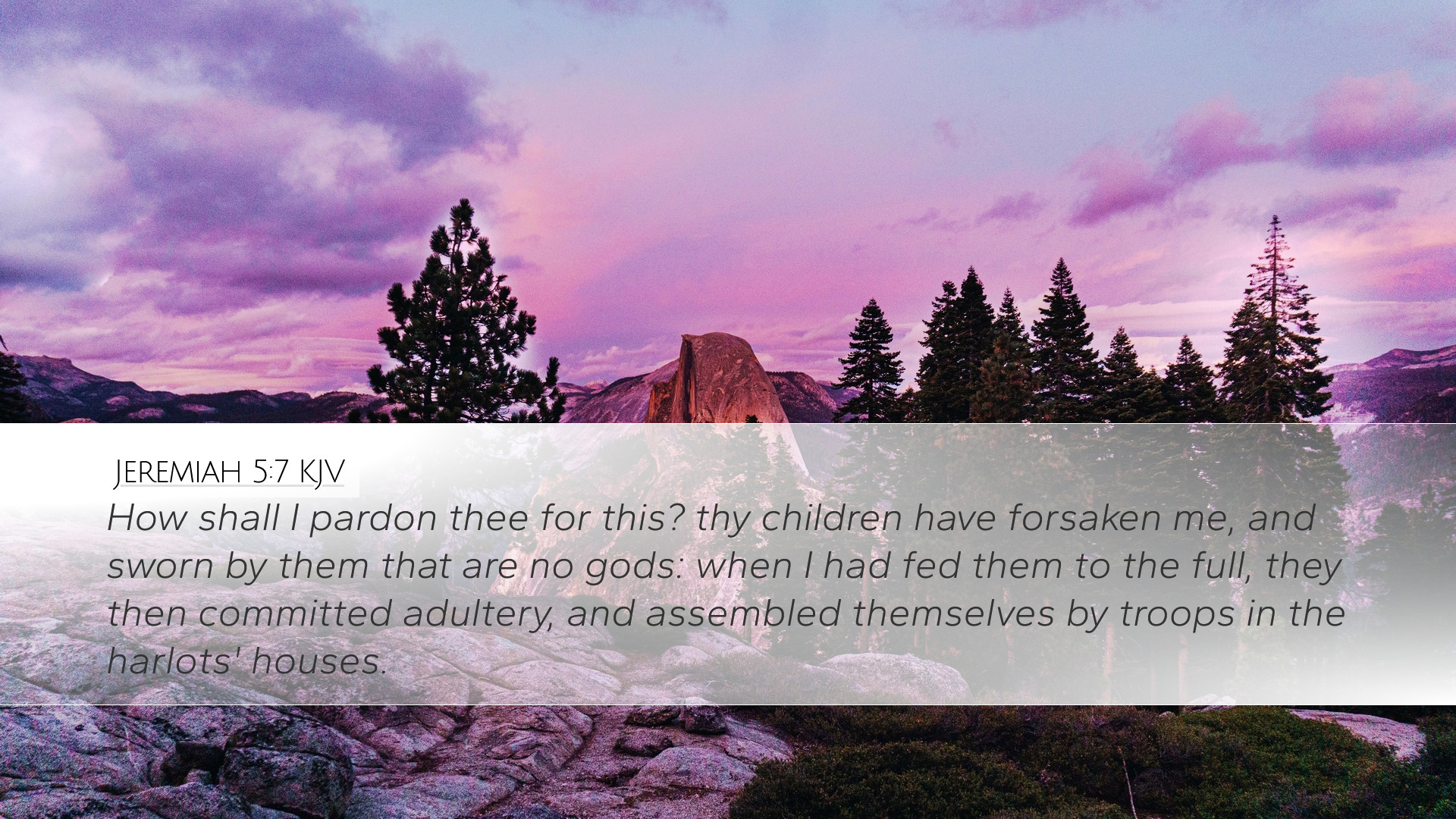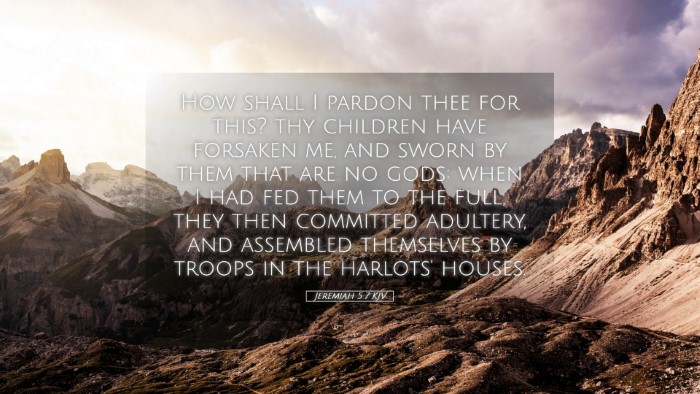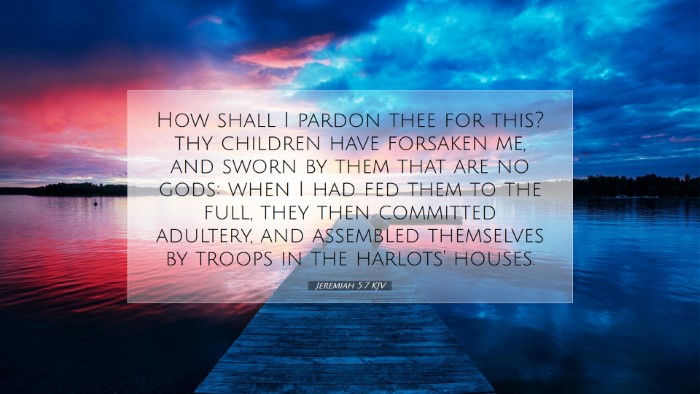Commentary on Jeremiah 5:7
Jeremiah 5:7 presents a profound insight into the challenges faced by the prophet Jeremiah as he addresses the unfaithfulness of Israel. The verse reads:
“How shall I pardon thee for this? thy children have forsaken me, and sworn by them that are no gods: when I had fed them to the full, they then committed adultery, and assembled themselves by troops in the harlots' houses.”
Contextual Overview
This verse is set within a larger narrative that highlights the relationship between God and His people, characterized by betrayal and idolatry. Jeremiah, the weeping prophet, reflects the heart of God grieving over Israel's sins. Repeatedly throughout this text, God laments the infidelity of His people, who turn to idolatry despite His faithfulness and provision.
Theological Insights
-
Divine Justice:
Matthew Henry articulates the overwhelming nature of divine justice, pondering how God can pardon such blatant sinfulness. This is a crucial theological point, presenting God as both merciful and just—implying that His grace cannot ignore transgression.
-
The Heart of Idolatry:
Albert Barnes remarks on the seriousness of forsaking God for false idols. The phrase “sworn by them that are no gods” exemplifies a profound betrayal; the people not only turned away but also allied themselves with what is inherently false, revealing their spiritual blindness.
-
God’s Provision:
Adam Clarke emphasizes the irony in the people’s actions. Despite being nurtured and sustained by God's bountiful hand, they repaid His goodness with unfaithfulness. This inquiry into human behavior reflects a deep understanding of human nature's proclivity to forget God's blessings when life is prosperous.
Human Condition Explored
The plight of Israel serves as a mirror reflecting mankind's tendency to stray in times of abundance. Jeremiah's lament reveals the cyclical nature of human faithfulness and the propensity for apostasy. As church leaders and theologians reflect on this, they are reminded of their own congregational responsibilities to nurture faithfulness among believers.
Practical Applications
-
Call to Repentance:
There is a clear call to congregations and individuals to evaluate their fidelity to God. Pastors may use this text as a stark reminder to preach repentance, not only for past transgressions but as an ongoing practice in the life of believers.
-
Warning Against Idolatry:
In an age filled with various forms of modern idolatry—materialism, secularism, and personal ambition—this verse serves as a sober warning to guard against the allure of false gods that draw hearts away from devotion to the true God.
-
Encouragement in God’s Faithfulness:
While the text delves deeply into sin, it simultaneously reveals God’s steadfastness and longing for reconciliation. It encourages believers of every era to cling to God's faithfulness amidst their shortcomings, fostering hope in His mercy.
Final Reflections
Jeremiah 5:7 is not merely a historical account but a timeless reflection on the human condition and the nature of divine grace and justice. It challenges Christians today to seek true devotion and to recognize the seriousness of turning away from God. Leaders in the church are called to guide their flocks with this knowledge, fostering a community where God's provision and steadfast love are recognized and honored, ensuring that they do not stray into spiritual barrenness.


